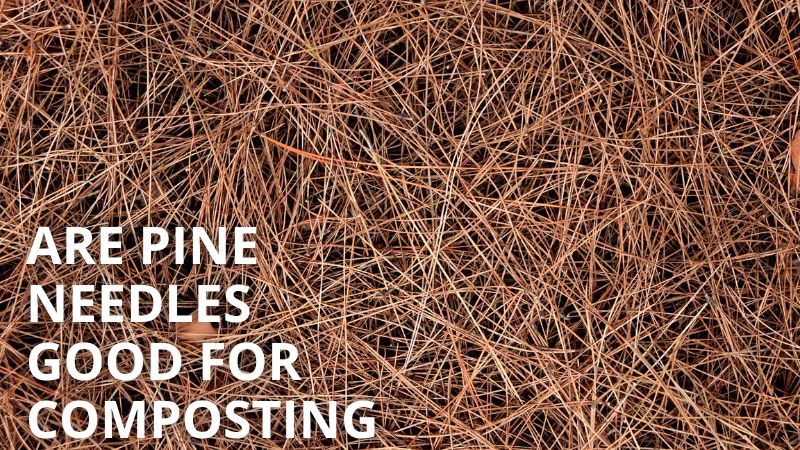GARDEN DECORATION
Are Pine Needles Good for Composting? Pros and Cons Explained
Composting is a vital practice for sustainable gardening, helping to recycle organic waste into nutrient-rich soil. One common question among gardeners is are pine needles good for composting. This article, Floral Garden Ideas will delve into the pros and cons of using pine needles in compost, providing a comprehensive understanding to help you make informed decisions.
Are Pine Needles Good for Composting?
Understanding Pine Needles
Pine needles, also known as pine straw, are the leaves of pine trees. They are long, and thin, and typically fall in large quantities, creating a thick layer beneath pine trees. These needles are often left to decompose naturally, but can also be collected for various gardening uses, including composting.
Pros of Composting Pine Needles
Abundant Supply: Pine needles are readily available in many regions, especially where pine trees are common. Their abundance makes them an attractive option for composting.
Slow Decomposition: Pine needles decompose slowly, which can be beneficial for maintaining a balanced compost pile. Their slow breakdown helps to keep the compost aerated and prevents it from becoming too compact.
Acidity Management: Pine needles are slightly acidic, which can help balance the pH of alkaline soils. This is particularly beneficial for acid-loving plants such as blueberries, azaleas, and rhododendrons.
Carbon-Rich Material: Pine needles are high in carbon, making them a great “brown” component for composting. They help balance the nitrogen-rich “green” materials (like vegetable scraps and grass clippings), ensuring a healthy composting process.
Moisture Retention: When mixed into the soil, pine needles improve moisture retention. This quality is passed on to the compost, helping maintain the right moisture levels needed for effective decomposition.
Cons of Composting Pine Needles
Acidity Concerns: While their acidity can be beneficial, it can also pose challenges. If used excessively, pine needles can lower the pH of the compost, making it too acidic for some plants. This requires careful management to ensure a balanced final product.
Slow Decomposition Rate: The slow decomposition rate of pine needles, while beneficial for aeration, means they take longer to break down into usable compost. This can be a disadvantage if you need quick compost turnover.
Potential for Matting: Pine needles can sometimes form a dense mat, especially when wet. This matting can reduce airflow and slow down the composting process. Proper mixing and occasional turning are necessary to prevent this issue.
Resin Content: Pine needles contain natural resins that can inhibit microbial activity, slowing down decomposition. This is another factor contributing to their slow breakdown and can require additional management techniques to ensure effective composting.
Tips for Composting Pine Needles
To effectively compost pine needles and mitigate potential drawbacks, consider the following tips:
- Shred the Needles: Shredding pine needles before adding them to the compost pile can speed up their decomposition. Smaller pieces break down faster and mix more easily with other compost materials.
- Balance with Other Materials: Ensure a good mix of green (nitrogen-rich) and brown (carbon-rich) materials in your compost pile. Pine needles should be balanced with other materials like vegetable scraps, grass clippings, and leaves.
- Monitor pH Levels: Regularly check the pH of your compost pile. If it becomes too acidic, add some lime or wood ash to neutralize the acidity. Maintaining a balanced pH is crucial for healthy compost.
- Turn the Pile Regularly: Regular turning helps to aerate the compost and prevent the matting of the pine needles. It also ensures even decomposition of all materials in the pile.
- Patience is Key: Given their slow decomposition rate, patience is essential when composting pine needles. Allow sufficient time for the compost to mature before using it in your garden.
Alternative Uses for Pine Needles
If composting pine needles seems too challenging, there are other beneficial uses for them in the garden:
- Mulching: Pine needles make excellent mulch. They help retain soil moisture, suppress weeds, and gradually add nutrients to the soil as they decompose. Their natural acidity also benefits acid-loving plants.
- Pathways and Ground Cover: Use pine needles to create natural pathways or as ground cover around garden beds. They provide a soft, cushiony surface and help prevent erosion.
- Winter Protection: Pine needles can be used to insulate plants during winter. A thick layer around the base of plants helps protect roots from freezing temperatures.
Final Thoughts
Pine needles can be a valuable addition to your composting efforts, offering both benefits and challenges. Their abundance, carbon content, and ability to manage soil acidity make them a useful component of compost. However, their slow decomposition rate and potential for matting require careful management. By following the tips provided and balancing pine needles with other compost materials, you can effectively utilize this natural resource to enrich your garden soil. Whether you choose to compost them or use them for mulching and ground cover, pine needles can play a significant role in sustainable gardening practices.


